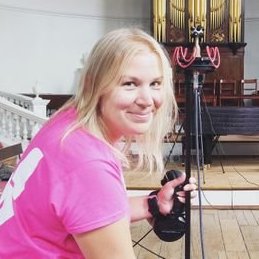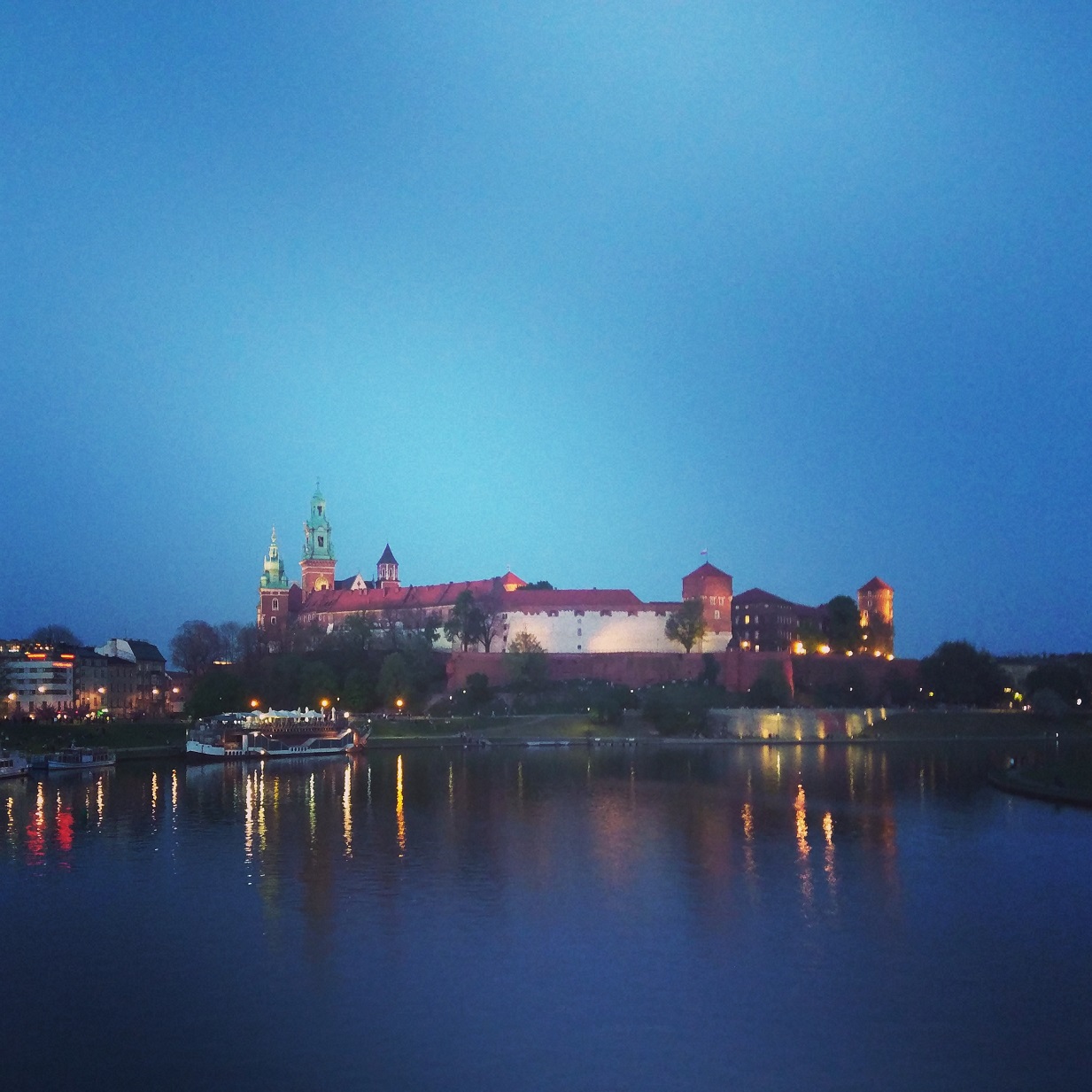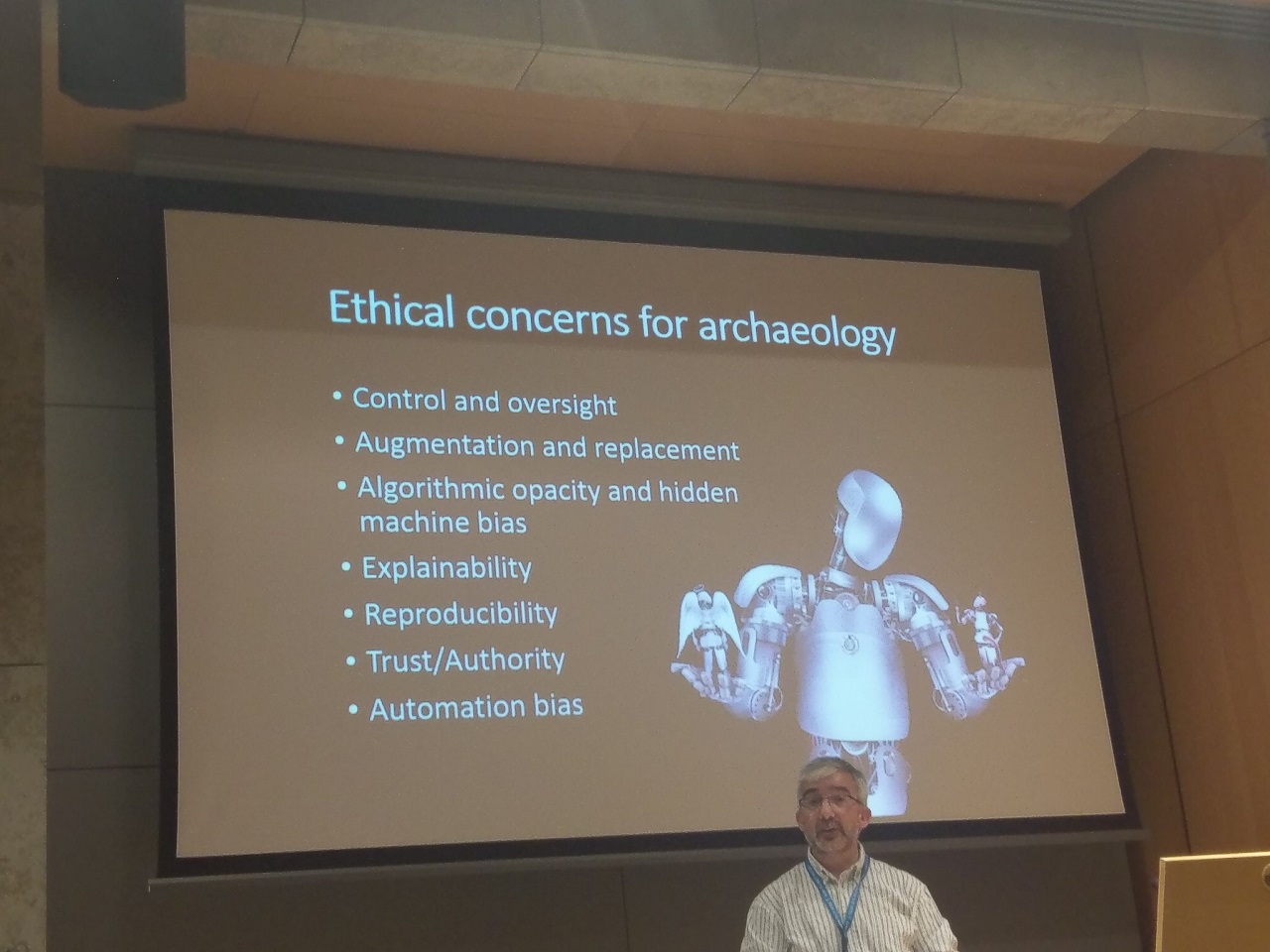
In April I was very grateful to The Marlay Group who provided £600 to support my attendance at the Computer Applications and Quantitative Methods in Archaeology International Conference in Krakow, Poland. The conference brings together academics and practitioners across a range of disciplines with interests surrounding the broad theme of computer applications in archaeology. I presented a paper in a session on Immersive Digital Media in Archaeology concerning the use of immersive acoustics to communicate archaeological narratives, drawing specifically on Listening to the Commons and the Voice and Vote Exhibition, with the Co-I on my previous post-doc Prof Damian Murphy. Despite issues with light and sound in the venue the presentation went well and fitted I think into broader discussions happening across the conference on themes of sensorial engagement and how we can move away from ocularcentric interpretations and approaches (which I had weighed in on as is my perogative!).

@CatrionaCooper reminds us that other cultures prioritise and treats senses differently. We are focusing on a #western prospective. perhaps we should step back and study more senses independently before we could explore different combinations and prospectives #krakcaa #s37 #037
— Eleonora Gandolfi (@eleonorag1) April 26, 2019
Beyond my session the most engaging session I attended focussed on User Experience Design led by Francesca Dolcetti (University of York), Rachel Opitz (University of Glasgow) and Sara Perry (University of York) which took a closer look at the effectiveness and impact on diverse audiences of the use of digital tools and applications. There was a strong sense that as a group who engage strongly with disseminiating narratives about the past we should be moving towards a workflow that places the end users and stakeholders at the centre of the design process and engage with them from the outset rather than waiting to final stages of evaluation. This is something I have been trying to champion from the outset with my fellowship here at the Fitzwilliam and I hope to weave in some of these ideas into my project. I was also particularly struck by the number of papers negotiating difficult heritages through digital engagements and how this can be an effective mechanism for telling those stories (I would champion papers and work by Paola Di Giuseppantonio Di Franco, Claire Boardman & Edward González-Tennant in particular).
In general there was a real theme of reflection on the ethical implications of technology driving our research and how we can address thoses issues. I stepped into chair a session on Digital Ethics in which Jeremy Huggett (University of Glasgow) presented a paper concerning our use of devices. He raised how devices impact our practice and have multiple and wide spanning implications. These issues were also raised by Gary Nobles in his session concerning the spatial analysis of 3D archaeological information in both theory and method. In general I think archaeologists do have the magpie like tendency to grab at new exciting technologies and allow them to dictate our research questions rather than first considering how we might appropriatly deploy new technology and the impact they will have.

It was a fantastically well organised conference and I enjoyed being able to champion the investment the Fitzwilliam has put into digital approaches and the work the CEEF team and our project partners have been doing.